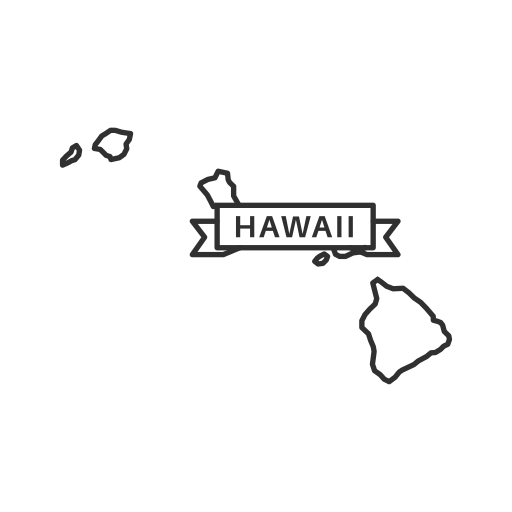Hawaii Covid Statistics 2023: Facts about Covid in Hawaii reflect the current socio-economic condition of the state.

LLCBuddy editorial team did hours of research, collected all important statistics on Hawaii Covid, and shared those on this page. Our editorial team proofread these to make the data as accurate as possible. We believe you don’t need to check any other resources on the web for the same. You should get everything here only 🙂
Are you planning to start a Hawaii LLC business in 2023? Maybe for educational purposes, business research, or personal curiosity, whatever it is – it’s always a good idea to gather more information.
How much of an impact will Hawaii Covid Statistics have on your day-to-day? or the day-to-day of your LLC Business? How much does it matter directly or indirectly? You should get answers to all your questions here.
Please read the page carefully and don’t miss any words.
On this page, you’ll learn about the following:
Top Hawaii Covid Statistics 2023
☰ Use “CTRL+F” to quickly find statistics. There are total 10 Hawaii Covid Statistics on this page 🙂Hawaii Covid “Latest” Statistics
- Hawaii’s all-time confirmed cases of COVID-19 is 371,103.[1]
- Hawaii’s all-time death cases from COVID-19 is 1,758.[1]
- COVID-19 has infected approximately 26.26925% of Hawaii’s population.[1]
- As of the most recent official state update on 12/27/22, the state of Hawaii has 371103 confirmed cases of COVID-19, with 1758 instances ending in death.[1]
- Honolulu County saw the biggest rise in COVID-19 instances, with 785 cases added.[1]
- In the last seven days, the state of Hawaii has experienced an increase of 1189 cases.[1]
- The number of vaccine doses administered in Hawaii is 3,421,295.[2]
- The number of people that are vaccinated in Hawaii comprises 78.4% of the entire state population.[2]
- Oahu has the most COVID cases in Hawaii with a total of 258,404 cases.[2]
- Lanai has the least COVID cases in Hawaii with a total of 832 cases.[2]
Also Read
- Alabama Covid Statistics
- Alaska Covid Statistics
- Arizona Covid Statistics
- Arkansas Covid Statistics
- California Covid Statistics
- Colorado Covid Statistics
- Connecticut Covid Statistics
- Delaware Covid Statistics
- Georgia Covid Statistics
- Hawaii Covid Statistics
- Idaho Covid Statistics
- Illinois Covid Statistics
- Indiana Covid Statistics
- Iowa Covid Statistics
- Kansas Covid Statistics
- Maine Covid Statistics
- Maryland Covid Statistics
- Massachusetts Covid Statistics
- Michigan Covid Statistics
- Mississippi Covid Statistics
- Missouri Covid Statistics
- Montana Covid Statistics
- Nebraska Covid Statistics
- Nevada Covid Statistics
- New Hampshire Covid Statistics
- New Jersey Covid Statistics
- New Mexico Covid Statistics
- New York Covid Statistics
- North Carolina Covid Statistics
- North Dakota Covid Statistics
- Oklahoma Covid Statistics
- Rhode Island Covid Statistics
- South Carolina Covid Statistics
- South Dakota Covid Statistics
- Tennessee Covid Statistics
- Texas Covid Statistics
- Utah Covid Statistics
- Vermont Covid Statistics
- Virginia Covid Statistics
- Washington Covid Statistics
- West Virginia Covid Statistics
- Wisconsin Covid Statistics
- Wyoming Covid Statistics
- District of Columbia Covid Statistics
How Useful is Hawaii Covid
The Hawaii COVID program seeks to provide a mechanism for travelers to demonstrate proof of vaccination or a negative test result in order to bypass quarantine requirements upon entering the Hawaiian Islands. While the initiative has been heralded as a reopening strategy to boost tourism and revive the economy, questions linger about the actual utility and effectiveness of Hawaii COVID.
On the surface, the Hawaii COVID program appears to offer a streamlined process for travelers, allowing for a smoother entry into Hawaii without the burden of a mandatory quarantine. In theory, this could encourage more tourists to visit the beautiful archipelago, injecting much-needed revenue into local businesses and helping to alleviate the economic strain caused by the pandemic. Furthermore, the program ostensibly provides a layer of protection for Hawaiian residents by reducing the risk of imported COVID-19 cases.
However, the practical utility of the Hawaii COVID program has come under scrutiny. Critics argue that the reliance on vaccination or testing as a determinant of entry may give a false sense of security and pose risks of importing new variants of the virus. Concerns have been raised about the accuracy of test results, the potential for fraudulent vaccination certificates, and the possibility of breakthrough infections among vaccinated visitors. Additionally, the program does not address the broader issues of public health infrastructure and preparedness, such as contact tracing and monitoring of community transmission.
Moreover, the Hawaii COVID program may inadvertently exacerbate existing inequalities and disparities within the community. Not everyone has equal access to vaccines or testing facilities, particularly in marginalized or underserved populations. This could perpetuate health inequities and deepen social divides, as those with limited resources or support may face barriers to compliance with the program requirements.
Furthermore, the success of the Hawaii COVID program hinges on the cooperation and adherence of travelers, who may not always follow the guidelines or disclose accurate information. Without robust enforcement mechanisms and monitoring systems in place, there is a risk of non-compliance and the potential for outbreaks to occur undetected.
In conclusion, while the Hawaii COVID program may appear to offer a solution for reviving tourism and managing the risks of COVID-19 in the short term, its long-term sustainability and effectiveness remain uncertain. Addressing the root causes of the pandemic, including global health disparities, vaccination equity, and public health capacity, is essential for building a more resilient and equitable future. As we navigate the complexities of living with COVID-19, it is imperative to continuously evaluate and adapt our strategies to ensure the well-being of all communities.
Reference
- covid-019 – https://covid-019.com/hawaii
- staradvertiser – https://www.staradvertiser.com/coronavirus/
